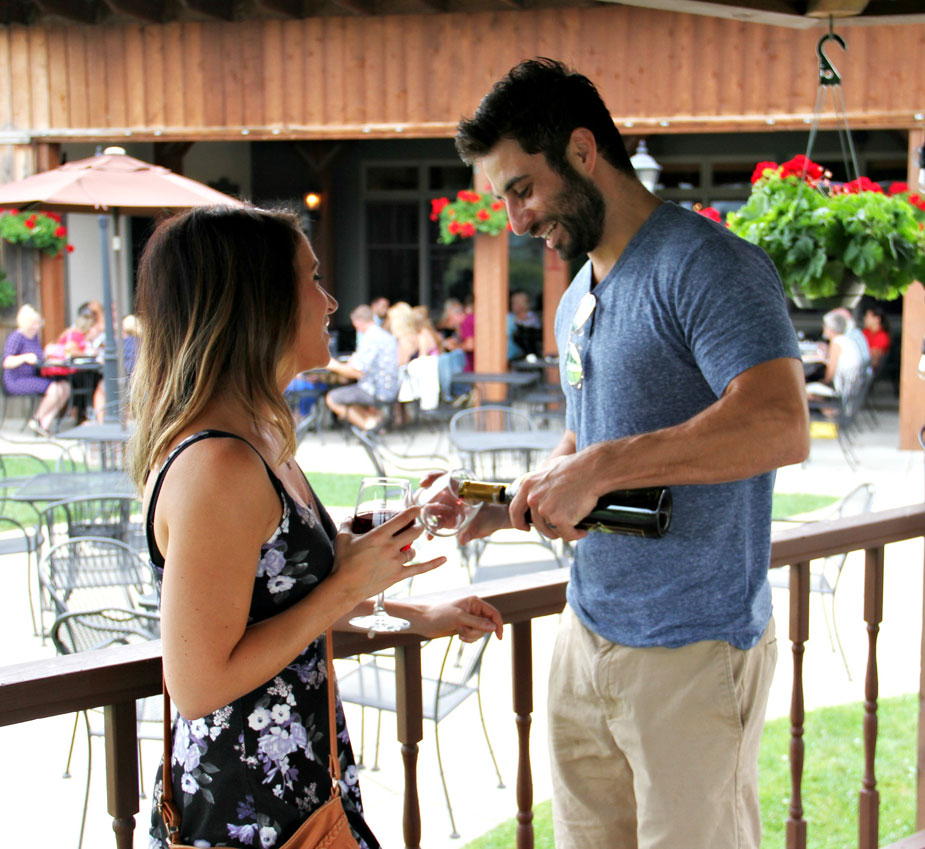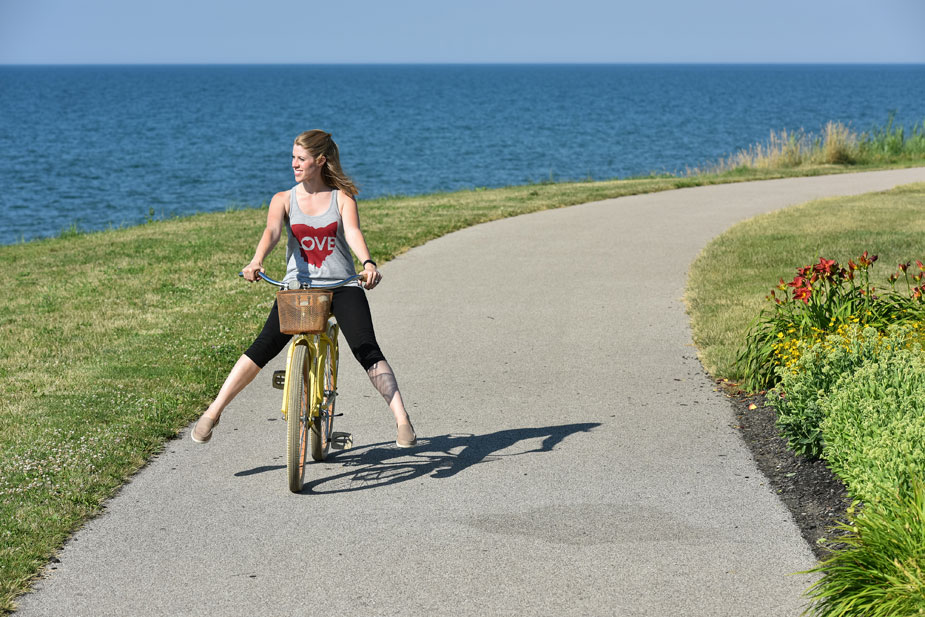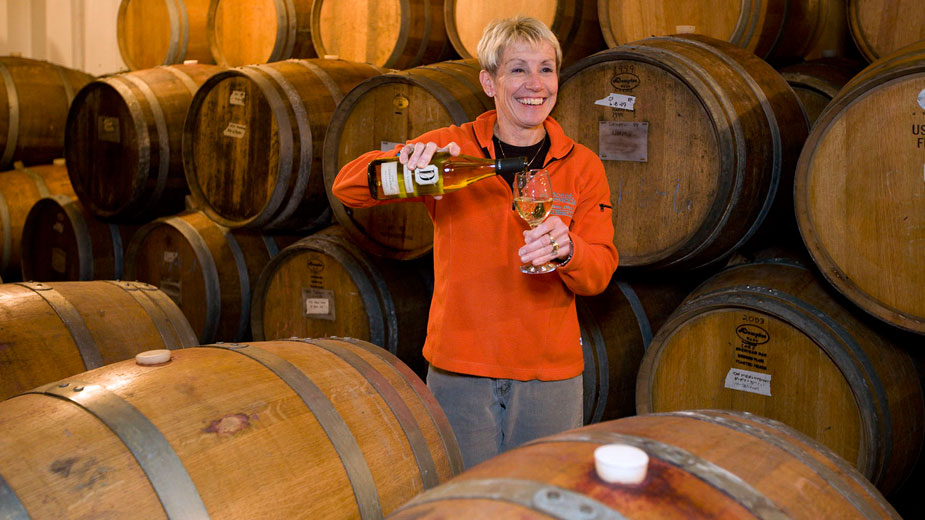GENEVA, Ohio – You could say the glass is half full.
The coronavirus shutdown shuttered the wineries of the Grand River Valley, but robust takeout sales offset some of the decline in revenue.
The viticultural region just south of Interstate 90 in Ashtabula County began to reopen May 15 when the state allowed patio dining. Indoor service resumed May 21, with social distancing and extra sanitation measures in place. The wineries were eager for it after being closed for more than two months.
At Debonne Vineyards in Madison, the largest grape producer in the state, cash flow from visitors had been squashed since mid-March. Takeout sales skyrocketed in reaction, though they didn’t come close to covering the losses.
Tony Debevc, owner of DeBonne, said he did a lot of discounting to boost sales, and the lure of the charming location and his loyal base of customers did the rest. DeBonne’s takeout sales were up about 500% for March and April, as compared to 2019.
“My thing was to keep ‘going to wineries’ at the top of people’s minds,” Debevc said. “They develop a relationship with us, and with the other guests here, and the setting and the owners. They try to duplicate that by buying it here and then drinking it at home on their deck.”
As a flagship of the Grand River area, DeBonne is used to throngs. Its large chalet-type building is surrounded by 175 acres of vineyards. DeBonne also has a large restaurant, gift shop and wine store.
The takeout business is nowhere near as profitable as the on-site sales. “You can buy a [discounted] bottle of wine to go for $7 but the same bottle costs $17 if they drink it here,” Debevc pointed out.
Winery-hoppers did return to DeBonne last weekend, although social distancing measures cut capacity in half.
DeBonne is in a rare position among its Grand River Valley colleagues. It is also a large-scale grower and a distributor of its own wines, and those market segments largely shielded it from the winery shutdown.
“Seventy percent of our sales are in distribution,” Debevc said. “Our wine is sold in 600 to 700 stores across Ohio. We also sell a lot of juice wholesale to other wineries.”
DeBonne wines’ strongest sales territory is northeastern Ohio. The Youngstown, Akron, Canton and Cleveland markets account for 80% of its sales, Debevc said.
According to conventional wisdom in the tourism industry, people tend to vacation closer to home during a national crisis, usually opting for multiple long weekends instead of a full week at a distant destination. Debevc said he did benefit from the “staycation” mindset during the financial crisis of 2008-10, but said a pandemic is a whole different animal.
With Memorial Day Weekend – the official start of the summer tourism season – upon us, he hopes staycationing happens again but he is not optimistic.
“If we can get over the social distancing, we could see an uptick,” he said, “but I don’t think that’s going to happen. It’s about a 60:40 split between people who are comfortable going out and those who are still jittery about it. And social distancing adds costs and cuts our seating in half. Plus all of our big events, the balloon rally, jazz festival, car shows, craft shows, live music, are all called off and those days create a high return on the retail.”
Ferrante Winery on state Route 307 is another mainstay of the Grand River Valley region. Like DeBonne, its wines are available in stores across the state and its vineyard is a magnet for wine tourists and day-trippers.
Ferrante opened its outdoor seating last weekend with 50% capacity.

“We were extremely busy last Saturday (May 16) and another huge weekend is coming,” said Alyssa Ollis, marketing director of Ferrante.
She was unsure of what the entire season will bring.
“We could see another period like after 9/11, with people doing staycations or weekend getaways, but it could go either way,” she said. “Every day is a learning process.”
Unlike DeBonne and Ferrante, which have been cultivating grapes and making wine for decades, Matt Meineke is a first-generation farmer-winemaker. He and his wife, Tara, planted their first crop in 2008 at their M Cellars on South River Road.
The tasting room at M Cellars will reopen this week.
Like his fellow vintners, Matt said one bright spot in the shutdown was his takeout sales, which sharply increased.
“We had record months for April and May,” he said.
Meineke seemed to think the rise in takeout wasn’t all that unexpected. He stayed the course and the wine aficionados did the rest.
“We didn’t do much that was unusual, and didn’t waver from the original plan,” he said. “We just shifted to an online model and geared our marketing to take-home.”
LODGING SHOWS SIGNS OF LIFE
The lodging industry in wine country was floored by the shutdown but has lately started showing signs of life.
The Lodge at Geneva, located at the west end of Geneva on the Lake, is an attraction unto itself and a bellwether of the region. It closed when the pandemic hit and will not reopen until late June.
The waterfront resort is the pinnacle of lodging options in the county but it was helpless in the face of the outbreak. As a result of travel bans, shelter-in-place orders and an element of fear, the hotel industry nationwide is experiencing its lowest occupancy rates since 9/11, according to hotelbusiness.com.
Officials from the Lodge at Geneva did not respond to a request for comment in time for publication of this article.
But hotels might be starting to turn the corner. A mild resurgence began after Gov. Mike DeWine began to lift restrictions, according to Stephanie Siegel, director of the Ashtabula County Visitors Bureau. In anticipation of Memorial Day Weekend, Siegel polled hoteliers and was pleasantly surprised with what she discovered.
“Anything above zero reservations would have made me happy,” she said. “But I was excited to hear them report 50% occupancy and almost all of them had [that level of bookings] for multiple weekends.”
Tourism travel had been practically nonexistent since March but as soon as word came that restaurants and wineries could reopen, that started to change.

“[Lodging business owners] said their phones started ringing as soon as the governor lifted the restaurant ban,” Siegel said. “If you would have gone somewhere before that, there would have been nothing to do when you got there.”
Memorial Day Weekend bookings in the county usually come at the last minute as folks wait on the weather forecast, Siegel said, but pent-up demand likely altered that habit this year.
“About two weeks ago, we saw a switch from cancellations to reservations,” she said.
Siegel noted that the efforts hotels are making to create a sterile environment go above and beyond state mandate. “This might be the cleanest time ever to stay in a hotel,” she said.
The chain hotels along I-90 are open, and The Lake House in Geneva on the Lake and the area’s many rental homes and bed and breakfasts are taking reservations, said Siegel.
Like the winery owners, she hopes vacationers adopt a “stay close to home” philosophy this summer. “We are starting to see that to be true,” she said. “It feels more comfortable for many people.”
Ashtabula County is known for its many summer events and festivals, including the D-Day Re-Enactment in Conneaut, the Wine and Walleye and Perch and Pilsener festivals in Ashtabula, and the Grape Jamboree in Geneva. But all of them have been canceled this year because of the pandemic.
Still, the charter boats are taking anglers out on Lake Erie and the beach at Geneva State Park is open. Siegel sees yet another source of tourism dollars.
“For years, we’ve been telling visitors to live like a local,” she said. “Now we are telling locals to live like a visitor. When was the last time you stayed at a cabin or watched the sun set over the lake?”
With its mile-long stretch of bars, restaurants, arcades, shops and wineries known as The Strip, Geneva on the Lake has long been a draw for families, bikers, bachelorettes and everything in between. The waterfront town is ready to start welcoming visitors this weekend, although things will be a little different.
Amanda Briggs, executive director of the GOTL Convention and Visitors Bureau, said social distancing measures might take some getting used to for those who regularly visit the rollicking Strip.
“We’re trying to save what’s left of the summer,” Briggs said. “It will be a different summer, but if we can follow the rules it will be OK.”
Restaurants, decks, stores, ice cream parlors and miniature golf courses will be open, but some familiar haunts will not. Most of the arcades will be closed, and only a small portion of the Adventure Zone family fun facility will be open.
Eddie’s Grill, the throwback burger and hotdog stand that is a centerpiece of The Strip, will not reopen until mid-June, Briggs said.
Pictured at top: Beth Debevc, co-owner of DeBonne Vineyards, pours a glass.
